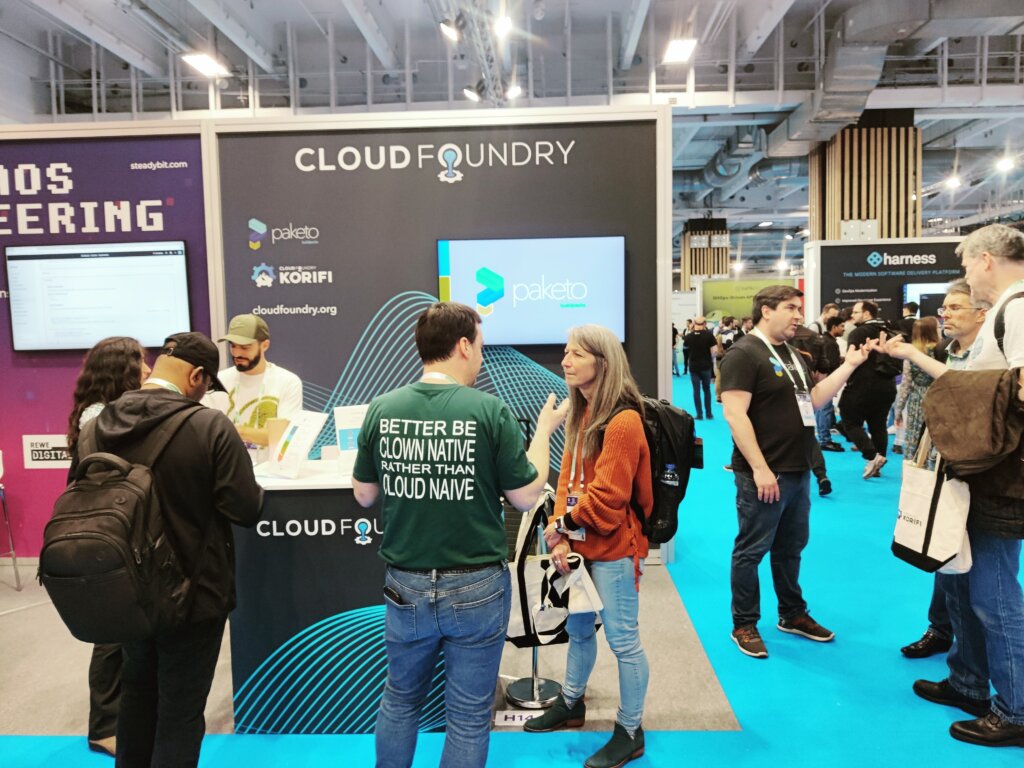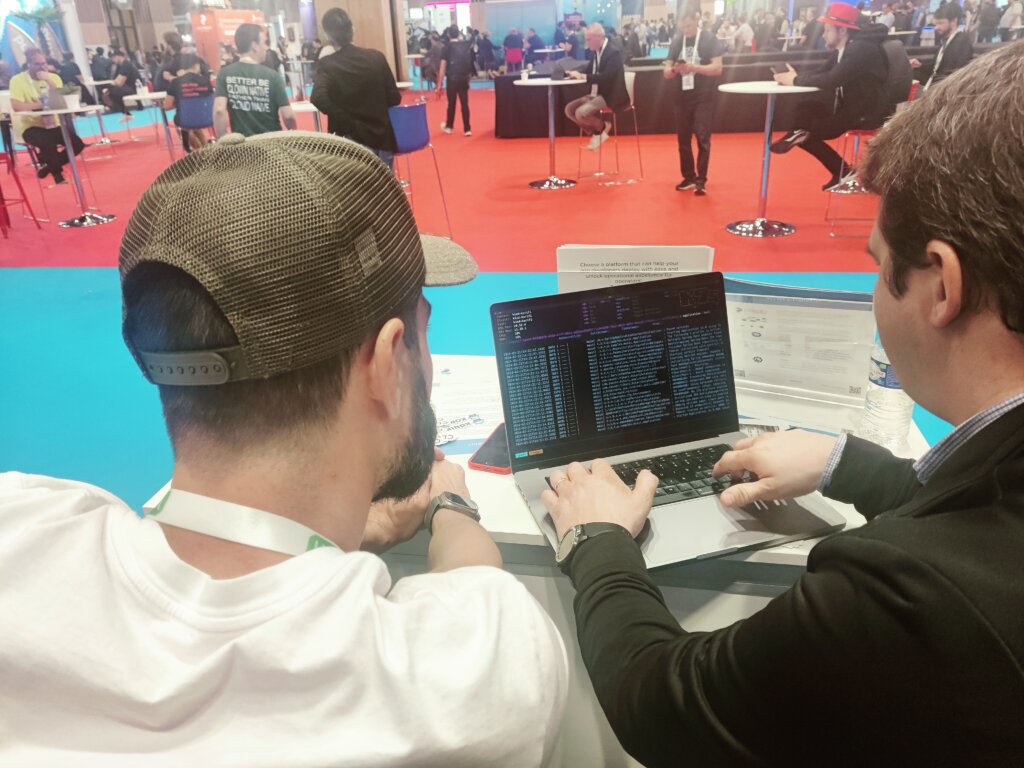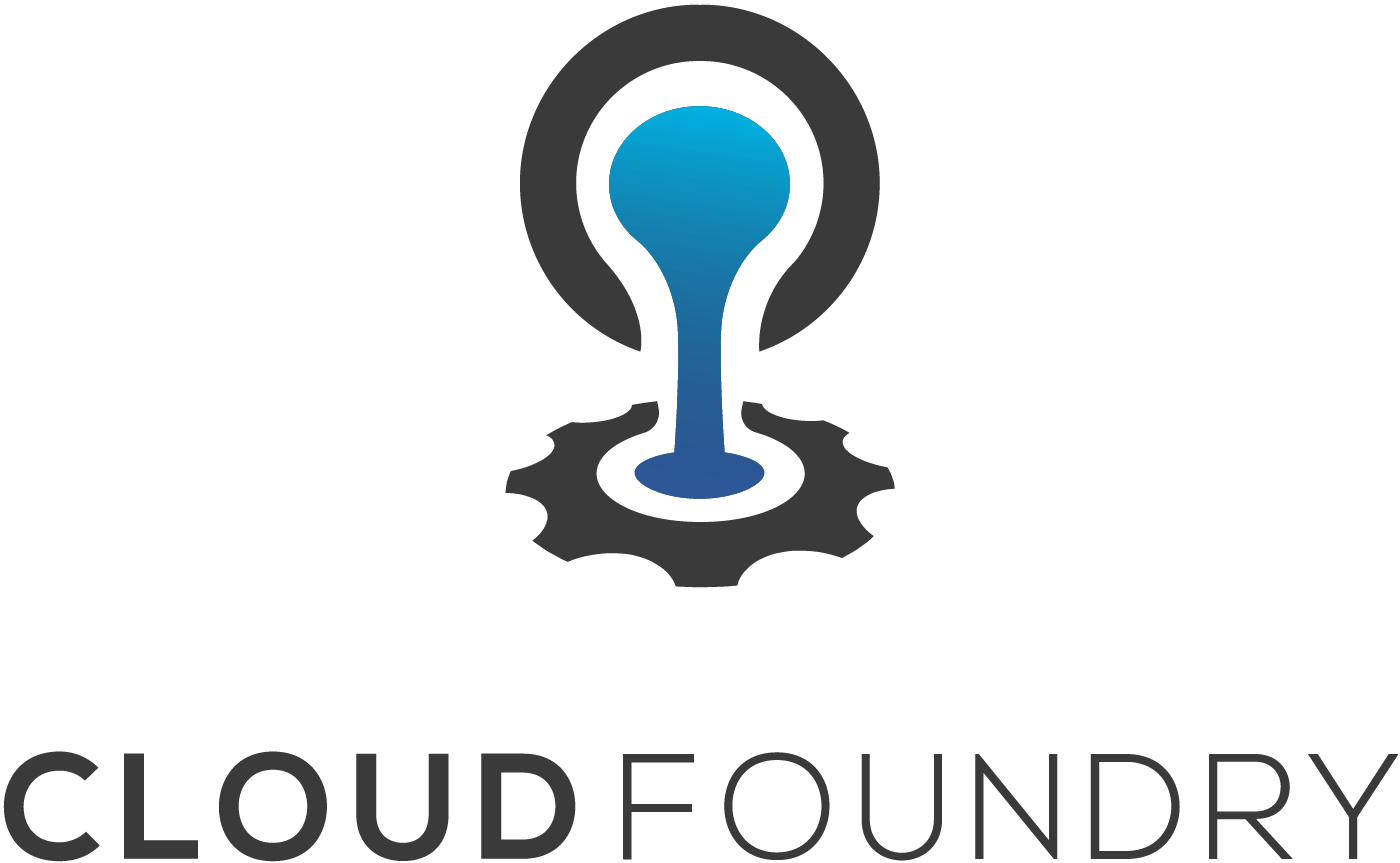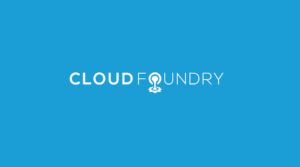Platform Engineering conversations dominated the scene at KubeCon + CloudNativeCon EU 2024 held at Paris. Here are the highs and lows of the event for us, from the perspective of the Cloud Foundry Korifi project.
KubeCon was a resounding success for the Cloud Foundry projects! There was a significant presence of Cloud Foundry users in Europe, and they all shared a common theme: their love for the Cloud Foundry experience. This includes the cf push developer workflow, which streamlines the process of deploying applications, and the overall Cloud Foundry value proposition of a developer-centric platform. Almost every conversation began with a yearning to have this familiar and efficient experience seamlessly integrated into Kubernetes, the leading container orchestration platform.

The Korifi booth was a hive of activity! Several attendees not only recognized Korifi by name but also made a beeline for our booth to discuss its current status. This is a fantastic indicator of adoption – people are actively trying Korifi, encountering challenges, and working through them. This hands-on approach is crucial for identifying and resolving issues, ultimately leading to a more compelling open source offering. One attendee even brought up a specific performance issue they wanted to delve into with the team. Their real-world experience and community participation will be invaluable to the project’s development.
However, one glaring omission became clear during our conversations: the absence of a cf marketplace equivalent. This functionality might be considered our Achilles’ heel. Currently, there’s no built-in mechanism within Korifi to discover and deploy pre-built applications or services, similar to the Cloud Foundry marketplace. A Cloud Foundry marketplace equivalent would not only establish parity with CF on VMs but also address a significant pain point for the entire Kubernetes community. Many Kubernetes users struggle to discover and deploy applications efficiently, and Korifi, with a marketplace feature, could step in and solve this problem. I wholeheartedly support the team’s efforts to prioritize the release of this feature, as it could significantly enhance Korifi’s appeal to a wider audience.

Another interesting takeaway from KubeCon is the evolving landscape of platform products and projects. Compared to previous conferences, several notable platforms have disappeared. SUSE has discontinued Epinio, its platform project on Kubernetes. Napptive, a service mesh provider, has shut down. WeaveWorks has shifted its focus away from GitOps, a deployment strategy for Kubernetes applications. Even Acorn, a platform built on Kubernetes, has pivoted towards a GPT for infrastructure approach, essentially moving away from the platform space altogether.
In this context, the fact that Korifi is not only alive but actively progressing is truly remarkable. While other platforms have faltered, Korifi is demonstrating resilience and determination. This should serve as a strong motivator for the team moving forward, as it highlights the potential of Korifi to fill the void left behind by these departed platforms.
Follow the progress of the project by joining the Working Group on GitHub, Slack, and other means.





